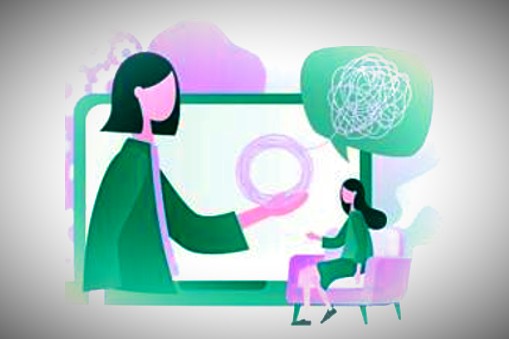India is grappling with a silent mental health epidemic. The National Mental Health Survey (2016) revealed that nearly 14% of the population, around 56 million people, need active psychological support. Since the pandemic, estimates have jumped to 1 in 5 Indians, signaling a deepening crisis. Not only this, according to the data collected by Lancet studies, India accounts for 36.6% of suicides globally. These numbers are a clear indication of how the Indian populace is in dire need of quality mental health interventions and services. But in a society with low purchasing power, the stigma around mental health, and a lack of well-trained therapists, seeking help can be an incredibly daunting task.
Mental health therapy in India exists in a highly stigmatized space. Telling a loved one you need therapy often results in questions about if you’re crazy or suggestions of using alternative solutions such as going to the gym or eating healthy. Such an unsupportive environment makes it difficult for one to seek therapy. Stack on top of that the cost of therapy and the commitment it requires to see gradual results, and the action of seeking help for mental health issues becomes an insurmountable feat.
Therapy is a process of exploring and understanding one’s own self, it is a process of change and gradual growth. This process, however, takes time to bring forth any noticeable result. On average, one requires 20-30 sessions to see any improvement in their emotional state. However, the prolonged cost and effort to engage in therapy combined with the difficulty of finding a suitable therapist (which is often a trial and error process) can be a deterrent for people who need help. Especially young people who are starting out in their careers often find themselves unable to set out a dedicated amount of money every month just to be able to meet the costs of therapy. Depending on the city you live in, an hour-long therapy session can cost between ₹700 to ₹4500. In Mumbai, the average cost of therapy is anywhere between ₹1000-₹5000 per session. This raises the demand for affordable therapists in Mumbai exponentially.
The cost is a major deterrent because of various reasons. There is a general lack of self-awareness regarding the process of recovery from mental illness, stigma and misconceptions associated with treatment, a general lack of patience from the patient’s side, and the desire for quick results which is especially true in the Indian context, and a lack of knowledge of what ‘therapy’ or ‘counseling’ entails. Unlike other physical, chronic, and debilitating ailments, mental health is not prioritized and therefore there is a general unwillingness to shell out the money required to seek mental-health treatments. Many also hold a general mistrust of sharing their problems with strangers, which further makes people believe that the cost isn’t worth it.
Another reason for the high costs of therapy is the huge demand and supply gap that lies between mental health services and people. According to the National Mental Health Survey, there are currently 9000 psychiatrists, 2000 psychiatric nurses, 1000 clinical psychologists, and 1000 psychiatric social workers in India. These numbers when matched with over 200 million people who require mental health services create a huge treatment gap. According to NHMS, the treatment gap for mental disorders range between 70-92% according to different disorders. This causes huge stress on the existing mental health services and practitioners and further drives them to raise the prices due to unmanageable workload.
One may suggest seeking out insurance cover for mental health services. Technically, health insurance should cover outpatient (OPD) expenses like therapist consultation, diagnostic tests, and pharmacy bills. This is also mandated by the Mental Healthcare Act 2017, which has made insurance for mental health ailments mandatory by law. However, despite government support, this has only worked to drive up the cost of mental health services. If one seeks a policy, they have to disclose complete medical history for coverage under health plans. If any past cases of psychological-ailment-related hospitalization are declared, there are chances of either rejection from coverage or 30-35% higher quoted premiums. All these reasons combined truly go to show the dire need for affordable therapists in Mumbai and across India.
These reasons dishearten people from seeking mental health care as they require. However, certain organizations are doing their part in providing quality mental health care at lower prices. One such organization that is working tirelessly to make therapy accessible to all is Another Light Counselling, a mental health organization that specializes in trauma, gender, sexuality, addiction, and kink-affirmative therapy. With a dedicated team allotted to offer counselling services to everyone, no matter the background, the counsellors at this organization are some of the best affordable therapists in Mumbai. Not only do they have two different options for therapy ranging from ₹800-₹1200 per session, including taxes, but they also go beyond that and often take initiatives such as sliding scale slots for therapy which allow a client to choose their payment options as per their budget. With a rigorous training background, well-trained therapists, and low cost for therapy, Another Light Counselling is working ambitiously towards making therapy truly accessible to all.

